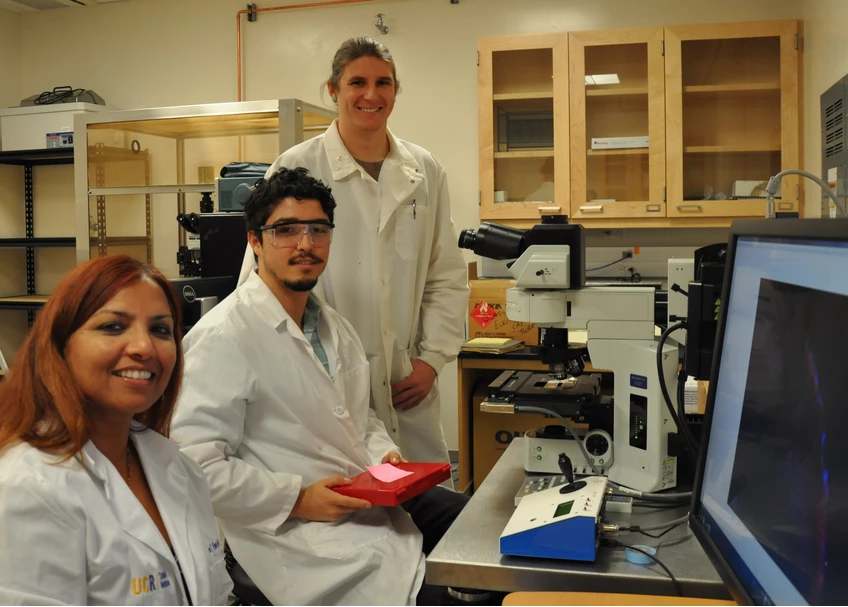Researchers are zeroing in on what looks like an effective treatment for the symptoms of Multiple Sclerosis. Teams from UC Riverside and New York's Rockefeller University have both used the same compound, indazole chloride, to successfully reverse the progression of MS in mice. The drug appears to be able to stimulate the regeneration of the myelin sheath – the nerve pathway coating that is progressively destroyed as MS attacks the nervous system.
MS affects around 400,000 people in the United States alone, and some 2.5 million around the world, according to Healthline. It's a debilitating disease in which the body's immune system begins to attack its own nervous system, gradually breaking down the protective cover called the myelin sheath, which coats the axons of nerve fibers in the brain and spinal cord.
As this demyelination progresses, patients begin to slowly experience the breakdown of their nervous system – sensation, vision and motor control begin to slowly degenerate, and permanent paralysis can be the end result. It's a horrible sentence.
One well known quirk of the disease is that female sufferers seem to have a reversal of their MS symptoms during the third trimester of pregnancy. This reversal has them feeling great for a couple of months, but then the symptoms reappear with a vengeance after childbirth.
This led researchers to investigate pregnancy hormones. They found that estriol, a form of estrogen, had a significant effect reducing the MS symptoms of lab mice.
But estrogen is a highly compromised treatment. It's been strongly linked to breast and uterine cancers, and has a feminizing effect which makes it particularly unattractive to male sufferers. Which led researchers from UC Riverside and Rockefeller University to start investigating compounds that might produce a similar effect on MS symptoms without the hormonal side effects.
Both teams have zeroed in on indazole chloride, a ligand that stimulates the ERβ estrogen receptors in the body without requiring raised levels of estrogen. And both teams have reported impressive results reversing the progression of MS symptoms in mice. The drug appears to be effective long after the onset of the disease, and seems to be able to stimulate the rebuilding of the myelin sheath, not only in MS cases, but in cases of traumatic brain and spinal cord injury. In simple terms, if the nerves haven't already been totally destroyed, indazole chloride helps rebuild them.
"Our work on mice suggests that its effect is permanent," said Associate Professor Seema K. Tiwari-Woodruff of UC Riverside. "But perhaps more significant, Ind-Cl remyelinates, that is, it makes new sheaths around those axons that have not been lost for good. This means Ind-Cl not only inhibits inflammation but is capable of reducing axon degeneration and restoring neuronal function… Ind-Cl works in two ways: through the immune system in terms of reducing brain and spinal cord inflammation, and directly by remyelinating the axons. This makes it an extremely promising drug."

We've written before about promising potential MS cures, particularly Dr. Zamboni's CCSVI work, but that proved to be completely ineffective under rigorous scientific testing.
In contrast, the Riverside team expects to go to clinical trial soon. The teams believe the drug can be tweaked to be even more effective, and eventually administered orally.
So, it's promising news for MS sufferers and their families, but there's still an agonizing wait ahead.
Source: UC Riverside and Rockefeller University (PNAS)





